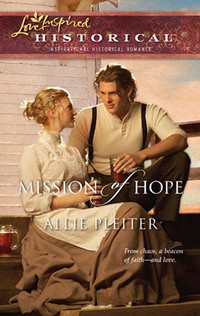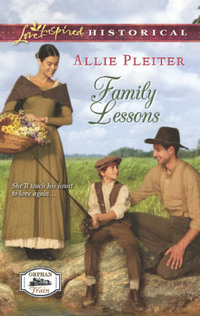
Полная версия
Queen Esther & the Second Graders of Doom
Chapter 6
Play to the Strengths
Essie changed her own clothes twice, and Josh’s three times, before declaring herself ready for the Manningtons’. For all its exclusivity, the area wasn’t hard to get to—Essie was still surprised at how easy it was to navigate San Francisco. Most of her home state couldn’t be called pedestrian-friendly—a car was essential to one’s very existence. She’d been reluctant to take only one car to San Francisco, but everyone’s insistence that she would rarely need it finally won out. Even encumbered by baby, stroller and diaper bag, it was still unbelievably easy to get around—except for pushing the stroller up all those hills.
Dahlia’s house was on the ritzy side of town, away from the T-shirt shops and silkware stands of the tourism center. Here, tourism rarely crept in to spoil the carefully crafted atmosphere. Each house looked like its own perfectly composed watercolor painting. Charming little gates and artistic walls tucked each family into its tiny, manicured kingdom. No one had a mere yard and house here—no, here it was all “landscaping” and “architecture.”
Essie maneuvered Josh’s stroller up the small, curving walkway, then took a deep breath and pressed the doorbell. A dignified chime echoed from inside the artfully carved door. Essie checked her own outfit and made sure Josh hadn’t repeated his favorite trick of removing his socks. After a short pause, the locks began to rattle and a small woman in a blue dress pulled the massive door open.
“Hello,” Essie blurted out, her voice revealing more tension than she would have liked. “I’m here to see Mrs. Mannington. I’m Esther Walker.”
The woman produced a rehearsed smile and reached down to help hoist the stroller over the threshold. “She’s expecting you. I’ll show you to the sunroom.”
The sunroom. Uh-oh, that sounded far too spiffy. Maybe she should have worn a skirt or something. Or a twinset. She should probably have gone out and gotten a twinset.
Now wait a minute, you hate twinsets. Essie gave herself a little pep talk as she went through the rigors of detaching Josh’s carrier from the stroller mechanism, removing his sweater and all the other details involved in transporting a now sleeping Josh into the sunroom.
This is a parent, Essie, plain and simple. You’ve gone into battle with football dads who can’t understand why their son isn’t captain of the track team as well as starting quarterback, you’ve dealt with schedule-crazed moms who want you to excuse their little darling from practice so she can get the only open manicure appointment; you’ve dealt with far worse with far more at stake. Don’t tense up now. You’re going to spend twenty minutes listening to every good and perfect character trait of Stanton Mannington, eat some free pastries, drink some decent coffee and nod a lot. That’s all you have to do.
As she walked through the well-appointed house, devoid of undone laundry, strewn toys, or any other signs of juvenile life, Essie couldn’t shake the feeling that this wouldn’t be that simple at all.
“Oh, Essie, I thought that’d be you. Did you have any trouble getting here?” Dahlia rose elegantly from her wrought-iron bistro chair and reached out a hand to take Josh’s carrier.
“Not at all. I’m still getting used to how easy it is to get around here.”
“And your little one is out cold, just like you said.” She smiled warmly down at Josh, touching a little green sock with a tender hand. “I miss the socks most of all. The tiny little socks in such fabulous colors. He’s darling.” She settled the carrier into a chair placed beside the table—just for the purpose of holding Josh, Essie suspected. The woman never missed a detail. “Now, Pastor Mark told me you drink coffee, so I had Carmen brew up some decaf because I remembered you’re still nursing. Carmen makes fabulous coffee—even decaf—so drink the whole pot if you like.” Dahlia motioned for Essie to take a seat in the other chair. The table was set like something out of a department store display—fresh flowers, starched napkins, rattan place mats, gorgeous china.
On cue, Carmen reappeared, bearing a tray of goodies. The scent of the sweet rolls could have made a grown man salivate, much less a mom who’d quickly downed a plastic bowl of wheat flakes an hour ago. A set of twin miniature coffee carafes took their place at the table—one with the universally recognized orange “decaf” marking, only this one was an elegant beaded clip rather than a plastic dot. Dahlia’s idea of “just whip something up” was a lot different than most of the world’s standards. Well, most of Essie’s world, anyway.
“Wow,” Essie commented. “This looks great.”
“Carmen knows her way around the kitchen, that’s for sure.” Dahlia tossed Carmen an efficient nod. “Gracias.” She poured herself coffee and whipped out the familiar Montblanc pen and leather notepad.
“Yes,” added Essie, looking up at Carmen. “Thank you.”
“So, how’s the class?” Her voice had the musical tone of someone who was being polite, but taking mental notes. Lots of them.
“They’re a…spirited lot, that’s for sure. It’s not hard to see where the nickname came from.”
That got a look from Dahlia. “I’ve never liked the nickname myself. I believe children rise to the expectations you set for them. Call them doom, you’ll get doom. I’ve never been asked to teach the class myself, but I can’t imagine that all that energy can’t be channeled with the right techniques.”
Essie had heard some version of that speech dozens of times in her teaching career. The women’s-magazine-TV-talk-show lingo of the enlightened parent. The parent who didn’t believe in “C” s. Who felt that defiant children simply “weren’t being challenged.” The kind of mom who would never let their child mix cookie dough with their fingers or roll down a hill that might cause grass stains, but signed them up for French lessons when they were five. The parents who inserted their children—whatever their shape—into neat, successful, boxes chock-full of brilliant potential.
“Seven-year-old boys are bundles of energy.” It was a poor response, but it was all Essie could think of to say. Last week Stanton had pushed up the tip of his nose with his finger and made pig sounds through the entire reading of the Bible story. She wasn’t sure “the proper channel” had anything to do with that kind of behavior.
“Well, Stanton certainly is high-spirited.”
Ah, there it was. That phrase. “High-spirited” was one of Essie’s favorite euphemisms. Kids weren’t bouncy or hyper or fidgety anymore, they were “high-spirited.” As if the inability to sit still for thirty seconds was an early symptom of visionary thinking.
“I hope you’re not finding him too challenging.” There was an edge to Dahlia’s voice. Not quite a challenge, but not quite an actual question, either.
Essie had long since learned that such a remark was a cue to gush about a child’s outstanding class behavior. Anything else would be viewed as a deficiency in one’s teaching skills. In her high school career, this remark—or anything close to it—was a parental “weather balloon.” Something lofted by a parent to see if Essie was up to the challenge of their brilliant but slightly misunderstood progeny. Evidently, it was no different with the younger set.
Taking a sip of coffee, Essie did what was expected. She launched an enthusiastic rendition of Stanton’s admirable qualities, concluding with, “Those papers you sent over didn’t surprise me one bit.” Okay, not exactly the truth—it floored her that Dahlia’d done what she did—but it was optimistic. Sort of.
They played this verbal game for the next twenty minutes, taking turns identifying Stanton’s strengths and talents. Here and there each of them cited the lengthy paper, using the data as the springboard to a compliment. It was a taxing, almost choreographed conversation. Essie was used to it, but mostly involving the complexities and large-scale behaviors of teenagers. Trying to make the case for Stanton’s often-violent obsession with being first in line as a precursor to leadership skills, well, that took a little more verbal agility. It was always a precarious knife edge on which to balance a conversation; when to be direct, when to hint at a problem, when to tell the parent what they wanted to hear. Essie was exhausted by the end of her third cup of admittedly excellent decaf. Come on, Josh, wake up and give me a diaper change to catch my breath here.
“What does the class need, in your opinion?”
Sedatives, Essie thought before she could stop it. Instead, she attempted a braver course. “In all honesty,” Essie ventured, “another set of hands would make things much easier.”
Dahlia didn’t even recognize the veiled request for her time. “Well, yes, of course,” she said, as though it were obvious that it should be someone’s—but clearly someone else’s—job to take care of such details. “It’s church policy to have two teachers. I’m sorry your co-teacher moved on such short notice and we’ve not yet found a replacement. I was thinking, though, more in the way of equipment, materials, that sort of thing.” In other words, what can I buy you? Because I have no intention of coming in there and helping you myself. Nope, no surprises here. “I am very busy with coordinating the Celebration, of course, but I do want to do my part in helping out the class.”
No, you don’t, thought Essie, you want me to give you an out. “I know it’s a lot to ask, but do you think Carmen could whip up some of these goodies for the Harvest of Witnesses event in a few weeks?”
Bingo. She’d hit the target. Dahlia fairly beamed. “Why, of course. Something a tad more nutritious, of course, but goodies nonetheless.”
“That’d be great. And I know we need someone to make up little baskets—nothing too girly, but still creative—for the class to use that day.” The children had an event where they went around the church “harvesting” goodies and information about great figures of the church. A few years ago, at Mark-o’s suggestion, a group of moms had created this event—a combination of scavenger hunting and gift-giving on the first day of November. It had become one of the things the church was known for, one of those things that drew new families to the church. Essie had always considered it one of the coolest things her pastor brother had ever done. “Can you think of someone who’s got those kind of talents?”
Dahlia’s pen bobbed again. “Oh, I’ve just the person. Vicki Faber—Alex’s new stepmother? She has a decorating business. She’s redone the house beautifully. I’m sure she’s got someone who could whip together just what you need.”
Alex Faber’s stepmother. Icky Vicki. Vicki and Alex’s dad had been one of the class’s invisible sets of parents. Alex’s older sister Sharon—the one who’d come up with the “Icky Vicki” moniker—always collected Alex from class.
“Here’re her numbers, why don’t you ring her up?” Dahlia said, handing her a thick card with the heading “From the desk of Dahlia H. Mannington” across the top. Pouring more coffee, her voice took on an “I don’t mean to be unkind” tone. “She is a bit younger than you, but I do think you might enjoy getting to know each other.”
I’ll just bet she’s “a bit” younger than me, Essie’s thoughts replied. And probably looks like she walked off the set of Baywatch. What am I doing with these people?
“I think Vicki has had difficulty adjusting to her new role. It was a nasty divorce, really. Vicki’s had her hands full trying to smooth things over. I imagine she’d welcome a little project to do for the class— I’m sure she knows loads of designers who could whip up a dozen or so perfectly manly baskets. I’d try the cell phone number first—Vicki is out and about most of the time.”
“Thanks, I’ll call her.”
Dahlia closed her organizer and notepad. Again on perfect cue, Carmen appeared in the French doors with a small white bakery box. “I had Carmen pack up a few of these rolls for you to take home. They’re far too good for me to keep in the house without gaining a dozen pounds, and I wonder if that husband of yours can help finish them off?”
Dahlia Mannington did think of everything.
“Oh, Doug will be more than happy to have these. That’s really nice of you.” And, believe it or not, she meant it.
Chapter 7
And on Some Sunday Afternoons…
“I’d never eat fish for lunch. Yuck.” Decker made a face as the Doom Room pondered the Bible story of the loaves and the fishes.
“Not even fish sticks?” Essie ventured. She fondly remembered the special days of fish stick and French fry frozen dinners on folding trays in front of the television. They were one of the great treats of childhood to her. She and Mark-o would usually have a competition of sorts as to who could glob more ketchup on a fish stick. Essie usually won.
“Fish sticks are gross,” Decker replied. “Besides, Mom says they’re fattening. She makes me eat Sam Man—you know, the pink fish—every Tuesday for dinner, but I hide it in my napkin and give it to Sparky. What’s ‘brain food’ anyway? I’m not eating that Sam Man’s brains, am I?”
Essie guessed that either Decker’s dog or cat was eating very well on Tuesdays lately. Salmon versus fish sticks. It sounded like a bad country song—
I’m just a fish stick gal,
Caught in a salmon fillet world…
“Salmon, Decker, is a fish, you’re right. But, no, it’s not brains. It’s good for your brain like lots of other kinds of protein—those are the types of foods that give your brain the energy it needs to do its job.”
“I think better eating cookies,” Dexter proclaimed, clearly unswayed.
Essie dragged the discussion back to the topic at hand. “Well, then, it’s a good thing you’ve all had a cookie or two, because we have lots of thinking to do today.” She clasped her hands. “Now, we’ve already read the story about this boy and how he brought his bread and fish to Jesus.” Decker opened his mouth, presumably to start up again about the grossness of fish for lunch, but Essie held up a silencing finger. “Almost everyone’s dad was a fisherman there, so bread and fish would have been like…like peanut butter and jelly to us. Everybody ate it.”
“I’m yullergic to peanut products,” pronounced Peter with a resigned voice. Just as Essie knew he would. Peter, it seemed, was “yullergic” to just about everything. Some days all Peter could add to a conversation was a list of relevant items to which he was allergic. On those days he would sigh, speak without enthusiasm and generally look as if the entire world was gunning for his immune system. How he reconciled such an outlook with his love of bugs and other slimy creatures, she couldn’t really say. An image of Peter, foraging under a rock with latex gloves on, flashed uninvited in her brain. Focus, Essie, focus.
“Okay,” she continued, “what he ate isn’t really the point here. The point is that he gave what he had for Jesus to use, even though it didn’t seem like much at the time. “David,” Essie said, turning to Cece’s son in an attempt to get things on the right track, “do you think five loaves and two fishes is enough to feed thousands of people?”
David scrunched up his forehead in thought. “You’d have to break it into really tiny pieces.”
Essie had to laugh at that one. “Even then, what that boy had just wasn’t enough to go around. Remember, it said that there were baskets of leftovers even after everyone had eaten. That’s why it was a miracle. Jesus took that food and made it able to do something very special. Something only God could make happen.” She looked around the room, trying to catch each boy’s eyes. “Sometimes the stuff we have to do in life feels like more than we can handle. Like we don’t have what it will take to do what needs to be done. Does anyone have an example?”
Justin’s arm shot in the air. “My baby sister. Sometimes she cries so much, I think I’m gonna explode.”
Essie thought about Josh’s most recent teething episode and could only nod in sympathy. “Babies are a handful, aren’t they?”
“I heard Mom telling Dad she thought she’d never, ever get to sleep again. When I told Dad we ought to make baby Megan sleep in the garage, he told me not to say that in front of Mom, but he was smiling when he said it, so I know he thinks we oughta try it.”
Essie could only imagine.
“My dad has a new job this month, and it’s making him really nervous,” offered Steven Bendenfogle. “He gets grumpy a lot. And sometimes he doesn’t come home till way after my bedtime. And he brings home lots of homework, besides. I think he feels like it’s too hard.”
“New jobs feel too hard lots of times. You could really help cheer him up, Steven.”
“I don’t know.” Steven shook his head. “He’s really grumpy some nights.”
“Well, now you’ve got something that feels too hard now, too, don’t you? It feels like it may be too hard to cheer up someone who’s really grumpy, doesn’t it? That’ll take Jesus’ help, too.”
Steven thought about that for a while, but then nodded.
“It’d be too hard,” said Stanton loudly, “to beat Jesus in a jumping contest, ’cuz He’s God and He’s got superpowers and stuff. He’d beat you at anything!”
Well now, superpower was an odd definition of deity, but it must have rung true to the average eight-year-old, because the other boys all immediately agreed. Instantly, boys began shouting examples such as “I bet He could spit a watermelon seed around the world,” or “He could kick a soccer ball through a brick wall,” and even several instances of X-ray vision.
“Or,” interjected Essie in a voice loud enough to cut through the din, “transform one little boy’s lunch into enough food to feed thousands of hungry people.”
Everyone had to think about that for a moment. Then, very quietly, Stanton said, “Yeah. Cool.”
Was it okay to think of Jesus’ miracles as superpowers? She hoped God didn’t mind a little creativity, because clearly Jesus just went up a couple of notches in the “cool” department for a few of these boys. And that was the whole point, wasn’t it?
“Superpowers aren’t real,” she said, because she felt it ought to be said. “But Jesus, and the things He can do with us when we believe in Him, those are real. And yeah, Stanton, they are cool. The older you get, the more you believe, the cooler it gets.” Nods and a few amazed faces.
Zing. It sunk in. Score one for the crazy mom from New Jersey.
And the very cool God who brought her here.
As she put away the workbooks after class, Essie pondered how overwhelmed she had felt about this “Doom Room” class. Hadn’t she felt like it was way too much to handle?
Suddenly, it wasn’t exactly clear who was teaching whom.
Cool.
Oh, it was cool all right, right up until Mark-o’s phone call that evening.
“Congratulations, Essie, you made it four whole weeks before the first call. That may be a record.”
Essie put down the stain stick she was using to try and get the Baby Tylenol stains out of a batch of Josh’s onesies. “What?”
“I was just congratulating you on going a full four weeks before some parent found something to gripe about it. That’s a pretty neat trick in my book.”
Essie sunk to the couch, deflated even before she heard the details. “Yippee. What is it?”
“Do you want the pastor version, or the brother version?”
Essie found the sheer fact that he had versions to be mildly annoying. “Which one’s more amusing? I gather this isn’t exactly good news.”
“Well, I admit to some level of bias, but I think the brother version has a bit more humor to it.”
“Ooo, I can hardly wait. Okay, let’s hear it.”
“Steven Bendenfogle’s mom is concerned that her son now accredits our Lord and Savior with the powers of X-ray vision.” He was laughing when he said it.
“That’s the brother version? And no, I did not say that Jesus has X-ray vision. As a matter of fact, I went out of my way to point out just the opposite.”
“I believe you, relax. How did the subject of X-ray vision come up, anyhow?”
Essie wanted to hold her head in her hands. Here she’d been spending the afternoon in a glowing joy about how the kids had really grasped the truth of miracles, and it was all coming undone in the space of one disgruntled mother’s phone call. “We were talking about the miracle of the loaves and fishes. They were really getting into it—you know, trying to figure out how that little bit of food fed all those people. We talked about God’s power, and what miracles are. They saw Jesus’ power as a sort of superpower. I think that’s a pretty good grasp for kids of that age. Oh, Mark-o, you should have seen their faces. They began to think of Jesus as cool. As someone to help them when they felt overwhelmed. It was great. And now this. I could just scream.”
“Look, Essie, don’t get worked up about this. You need to remember that we’re working on thirdhand information here, with one of those hands being eight years old. Things are bound to get twisted. You can’t let it get to you.”
“Then why am I suddenly envisioning ‘This session may be recorded for quality control purposes’? She doesn’t really think I told them Jesus has X-ray vision, does she? It’s…she can’t…”
“It’s no big deal. Actually, I think it’s rather funny.”
“You would, but…”
“What it does tell me, is that you have these kids thinking. Engaged. Working through ideas in their own terms. Surely the educator in you can see what a good thing that is. I’d much rather have this than a group of kids who can recite the books of the Bible in bored voices.”
“But…”
“It’s an imperfect system. We’re imperfect teachers. You’re not going to get perfect scores on this, Essie, ever. You’re going to miss the target lots of times. But it seems to me you’re going to hit the mark lots more times, and in the end these kids will be the better for it. Will you believe me if I tell you that this phone call just reinforces for me that I got the right person for the job?”
“Oh, yeah? Then why’d you call me to tell me Mrs. Bendenfogle believes I’m bordering on blasphemy? Why didn’t you just keep your satisfaction to yourself?”
Mark-o’s reply was a frustrated groan. “Be-cause, Mrs. Extreme Drama, I need you to tell Steven Jesus doesn’t have X-ray vision so he can go home and put his mother’s mind at ease next week.”
“I already told Steven Bendenfogle that superpowers aren’t real.”
“Then be more specific. Something along the lines of ‘Steven, Jesus does not have X-ray vision’ ought to do just fine.”
“Mark-o…”
“One kid got his information twisted. Now stop getting all worked up, simply set him straight and get on with it, no matter how ridiculous it seems. You missed one shot, Essie, not the whole track meet. And it’s not a competition. Look, if you knew how many calls like this I get a week, you’d see this for the minor detail it is. I get notes about how I don’t comb my hair, or how I don’t use the Bible translation they like, how the organ’s too loud or the praise band isn’t loud enough, or that we should be using white bread instead of wheat bread for communion—all kinds of tiny grievances.”
Essie moaned. “How do you stand it?”
“I try to remember that if they care enough to make a comment, then I’m at least getting them to care at all. In my business, opinion isn’t the enemy, apathy is.” He paused for a moment before adding on a sigh, “And some Sunday afternoons, you hit the golf ball really, really hard.”
“Okay. Young Master Bendenfogle will get his X-ray vision thing straightened next week, count on it.”
“I knew I could. And promise me you’re not going to get all worked up about this. It’s one detail in a whole stack of successes. Got it?”
Essie sighed. “Got it. Hey, wait a minute! Doesn’t seeing into our hearts, seeing past our actions into our intentions count as a spiritual sort of X-ray vision?”
The Pastor Taylor tone came back into his voice. “Essie…”
“Okay, okay, point taken. I’ll be crystal clear next week. By the way, what did Dr. Einhart say about Pop’s latest blood work?”
“The appointment got moved to this week. I…uh…meant to talk to you about that.”












